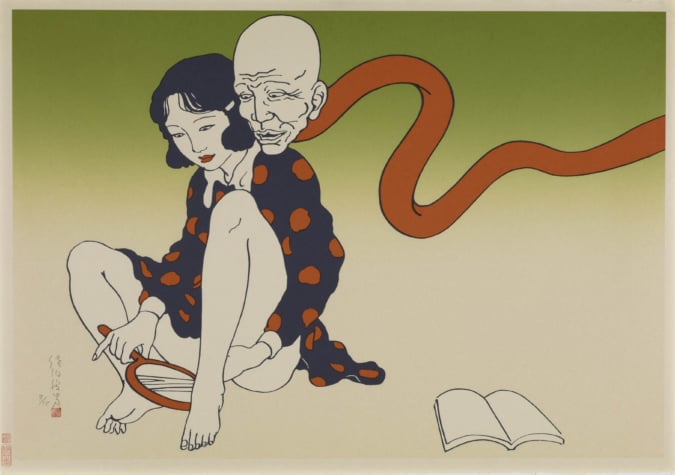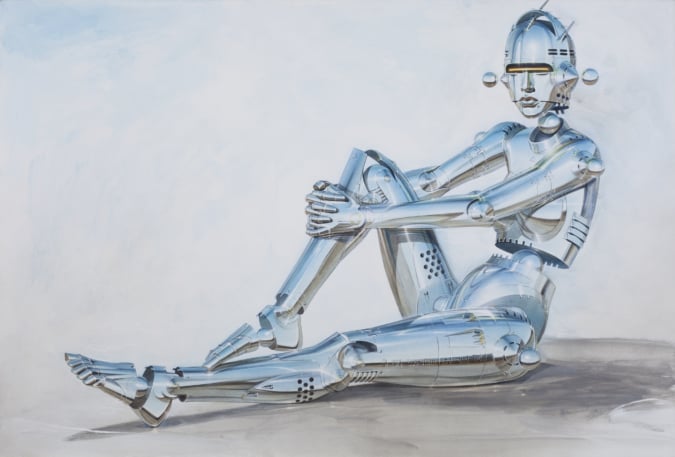A Journey to the Land of Sumo Wrestlers
David Prudhomme plunges the reader into the mysterious world of sumo wrestlers, explored through images in his book ‘Sumographie.’
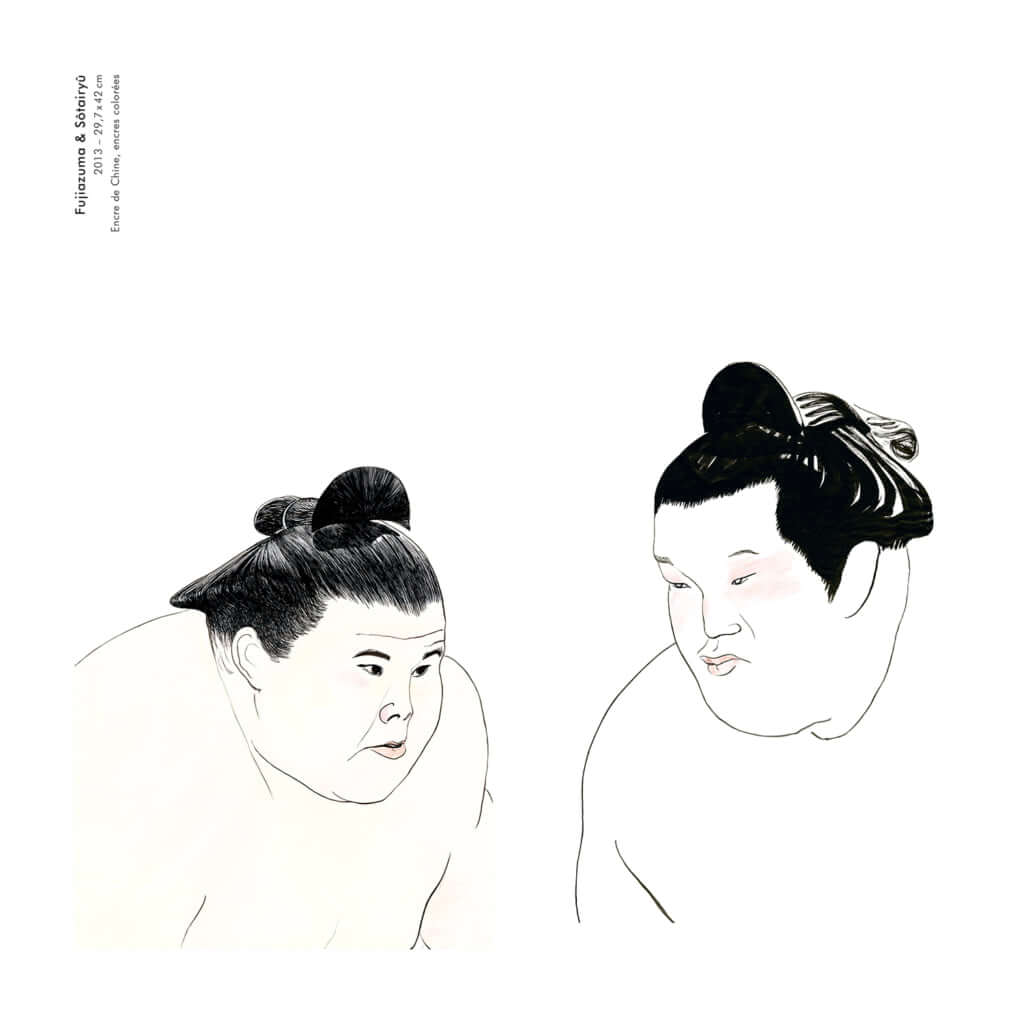
©Éditions Soleil, 2019 – Prudhomme
Considered as demigods in Japan, sumo wrestlers are also a source of fascination well beyond Japanese borders. However, the world inhabited by these giants often remains impenetrable to curious individuals. Although it’s possible to watch a match during tournament periods, very few people are authorised to enter the training rooms.
Comic artist David Prudhomme takes readers with him to follow in the footsteps of these extraordinary men and into the mysterious world of their everyday life in his book Sumographie, published by Soleil. Set on glossy paper, the book initiates readers into the subject through over 300 sketches completed over many trips to Japan from 2012 to 2019. In creating Sumographie, David Prudhomme worked in a variety of disciplines for these drawings that were initially intended to be presented to the public in the form of exhibitions.
Sketches using multiple formats and techniques
The pages reveal many images of these wrestlers, sometimes in colour, sometimes in black and white, and in a variety of formats. Some pages unfold to reveal characters over 50 cm in size, while others take shape on very thin paper, which lends them an extremely fragile, delicate quality that contrasts with the depiction of these imposing, enormously heavy men.
The author also uses various drawing techniques. Ink and felt-pen drawings appear alongside those done using charcoal or Chinese ink. This was a very carefully thought-out decision. ‘I decided to create a contrast by drawing these wrestlers with a fine, delicate, and light touch. It seemed more interesting to me to provide a contradiction to the first idea that people might have of rikishi (the word used in Japan to refer to sumo wrestlers – editor’s note)’, explains David Prudhomme. ‘When you see them from very close up and watch them work and train, you see the extent to which they reconcile opposing ideas. They bring together power, speed and excess weight, and are constantly fighting against gravity. I tried to convey that by replicating it through visual art.’
But when looking at these giants fixed on paper, there are also some with surprising outlines, like the ‘bruiser’ who is pale pink in colour and whose body shape is almost reminiscent of the softness and fluffiness of a marshmallow. ‘I looked at lots of prints of sumo wrestlers, but I didn’t think there was any interest to be found in simply copying those styles’, explains the author. ‘But the drawings in the prints were very far from being a true representation of the anatomy, which gave me licence to take a very free approach to my drawings.’
A collaborative work
This artistic approach is supported by the work of Sonia Déchamps, who wrote the different texts found in the book. ‘I was lucky enough to attend a training session in February, in a heya (the place where sumo wrestlers live and train – editor’s note), and I was captivated’, she explains, the project having marked her first venture into this unusual world. ‘I’d already started my research so I knew it was something that was going to interest me, but it went beyond that! Being just metres away from the wrestlers was fascinating, and so intense! So much strength, flexibility, determination, suffering…’
The journalist also read many books on the subject. ‘I wanted the texts to be as clear and transparent as possible so that they would really accompany the reader as they discover and understand the images. But the idea was to never lose sight of the fact that this was, above all, a book of illustrations.’ The duo then selected the images and put together a template before Sumographie was born a few months later. The work is divided into five parts: training; portraits; preparations; fights; and dreams. The book is 200 pages long and offers the reader a journey into the land of sumo wrestlers unlike any other.
Sumographie (2019), a comic by David Prudhomme and Sonia Déchamps, is published by Soleil.
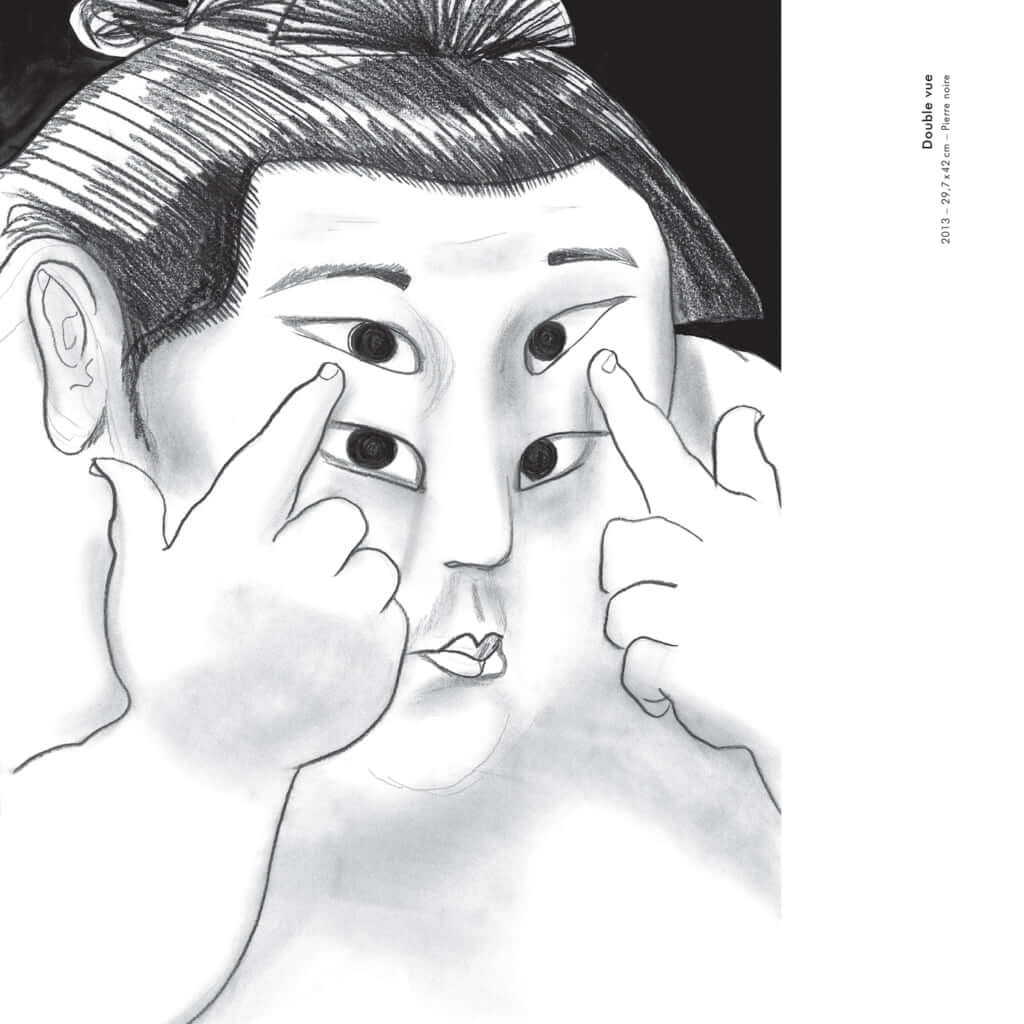
© Éditions Soleil, 2019 – Prudhomme
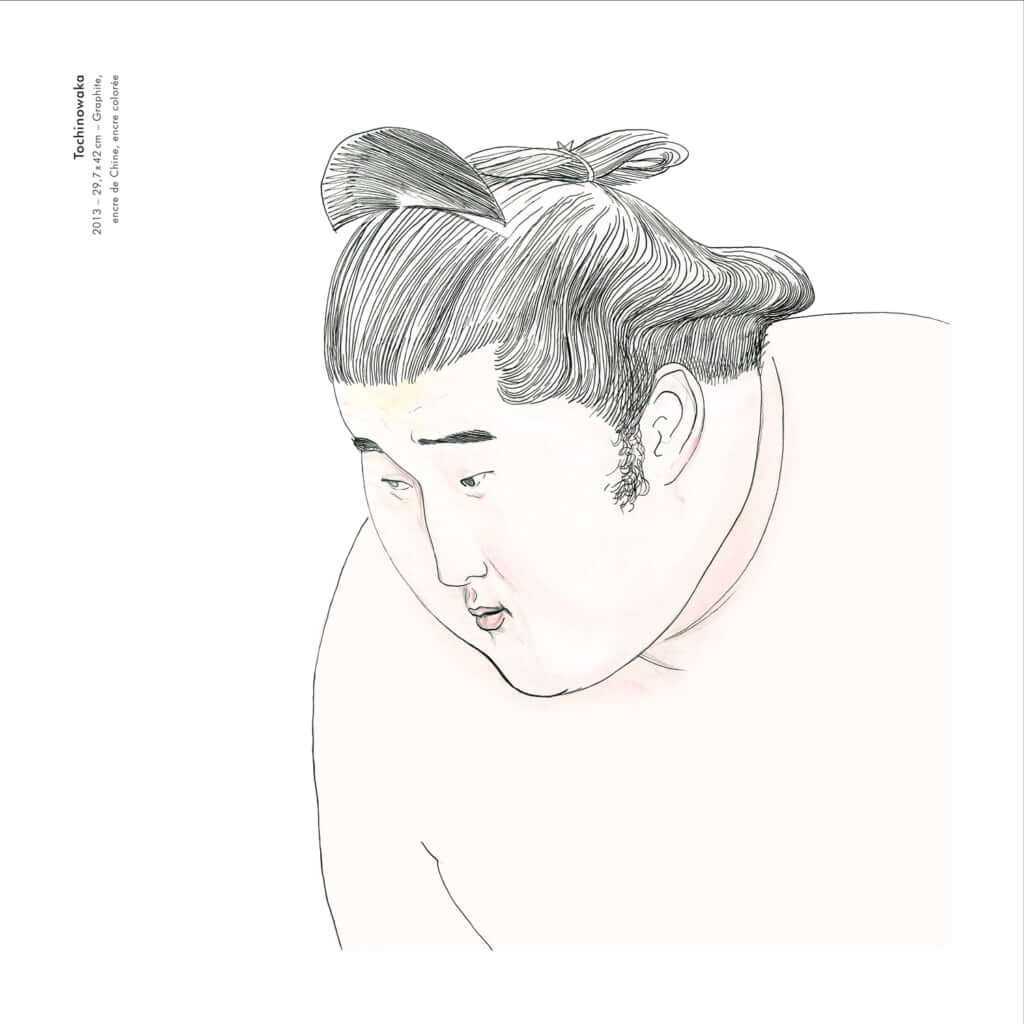
© Éditions Soleil, 2019 – Prudhomme
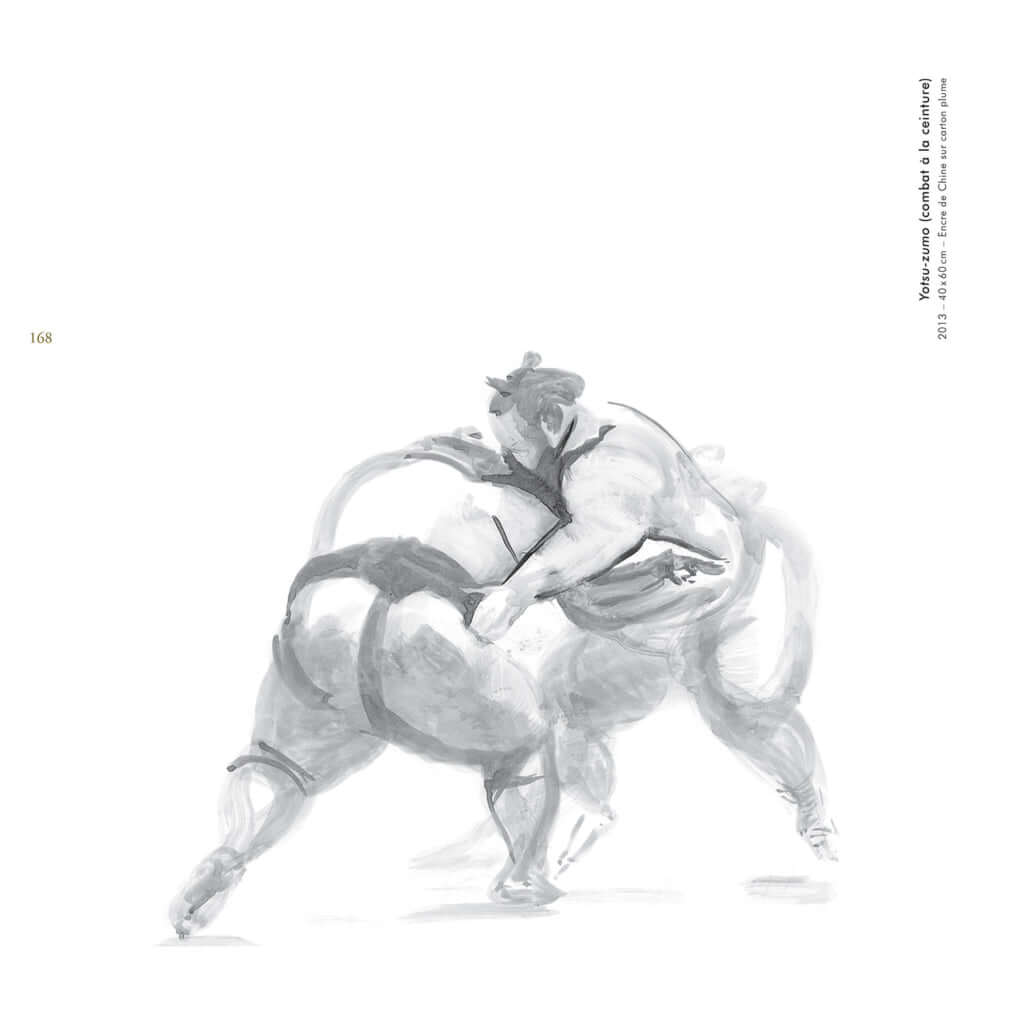
© Éditions Soleil, 2019 – Prudhomme
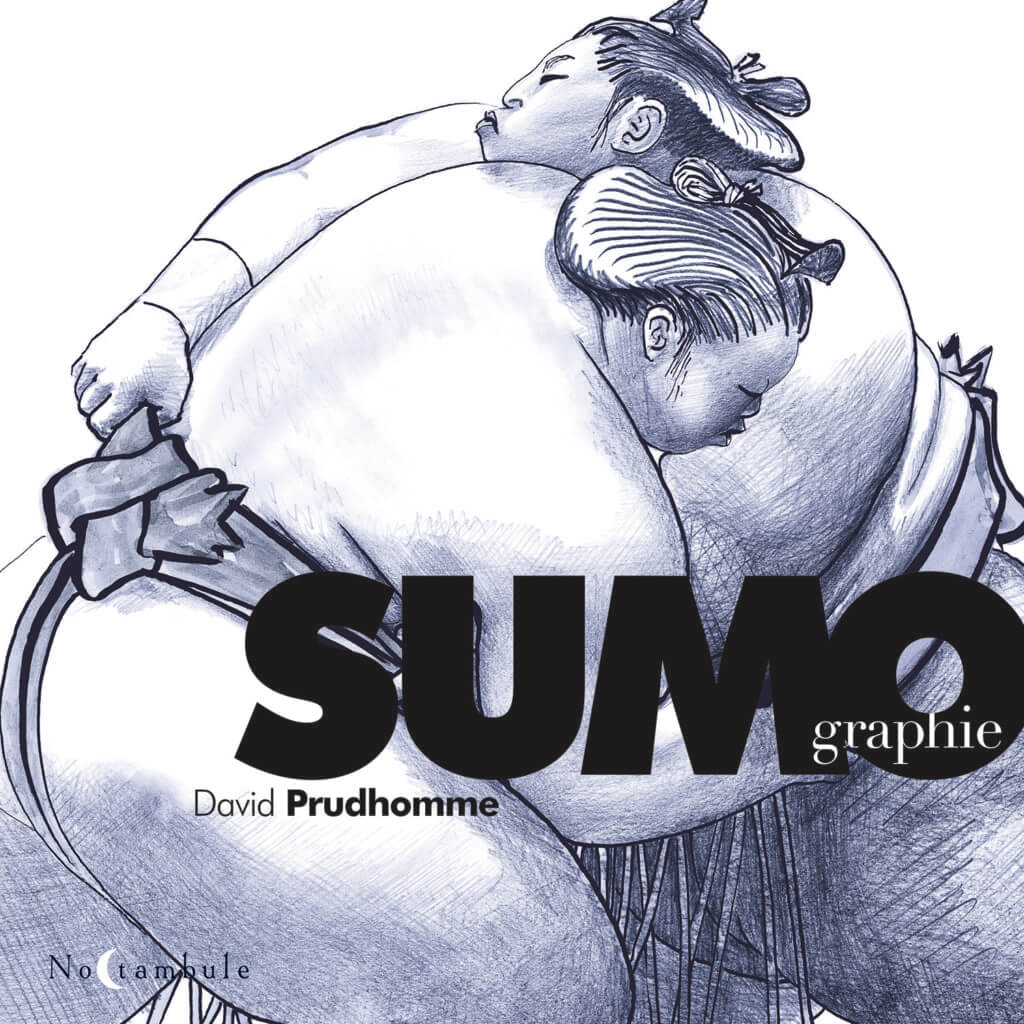
© Éditions Soleil, 2019 – Prudhomme
TRENDING
-
A House from the Taisho Era Reveals Its Secrets
While visiting an abandoned building, Hamish Campbell discovered photographs the owner had taken of the place in the 1920s.

-
The Taboo-Breaking Erotica of Toshio Saeki
The master of the 1970s Japanese avant-garde reimagined his most iconic artworks for a limited box set with silkscreen artist Fumie Taniyama.

-
With Meisa Fujishiro, Tokyo's Nudes Stand Tall
In the series 'Sketches of Tokyo', the photographer revisits the genre by bringing it face to face with the capital's architecture.

-
Masahisa Fukase's Family Portraits
In his series ‘Family’, the photographer compiles surprising photos in which he questions death, the inescapable.

-
Hajime Sorayama's Futuristic Eroticism
The illustrator is the pioneer for a form of hyperrealism that combines sensuality and technology and depicts sexualised robots.


